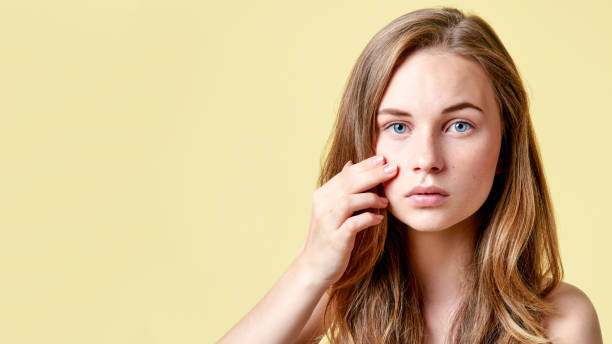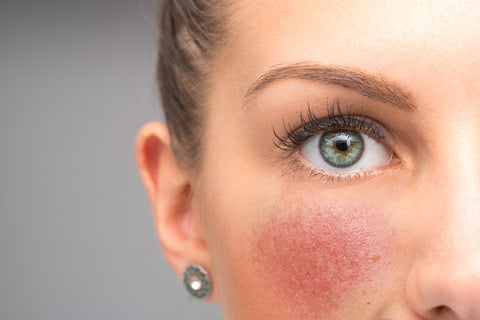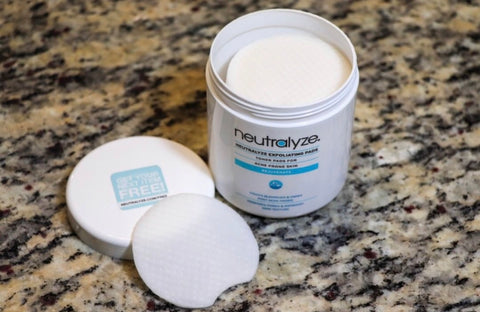Moderate to Severe Acne Treatment Kit for Teens
acne
acne skincare
acne treatment
severe acne
teen acne
teens bad acne

Acne is a common skin problem among teenagers. It affects up to 50 million Americans and around 85% of teenagers. While it’s not considered as a health risk, moderate to severe acne can have social and psychological impacts on an individual. The effects are especially evident among teens who are still finding their identity, forming relationships, and looking for validation through peer acceptance. Acne can affect a teenager’s self-esteem and body image. It can hinder their social interactions, daily activities, and academic performance. While acne does have some serious physical and mental repercussions, there are a number of treatments available that can help address moderate to severe acne in teens.
What Causes Teen Acne
Teen acne can be caused by various factors, the most common of which are hormones and genetics, as well as overly productive sebaceous glands and bacteria. Hormonal changes and stress can also exacerbate acne. When a person hits puberty, they undergo hormonal changes brought about by an increase in androgens. Excess hormones cause the skin’s oil glands to become overactive. When these oil glands become overactive and enlarged, they produce a lot of sebum that can clog your pores or hair follicles. Clogged pores can host bacteria, which might cause swelling or redness and eventually turn into full-fledged acne. Acne commonly appears on the face, but they can also appear on other areas, like the chest, back, and upper arms.Whiteheads
These are clogged pores covered by a thin layer of skin that bulge and look like white dots.
Blackheads
Blackheads, like whiteheads, are also clogged pores that look like bumps. However, blackheads are discolored, not because of dirt but due to factors like bacteria, oxidation, and even dead skin cells.
Papules
These are red and swollen lesions that result from the inflammation of the tissue around the clogged follicles.
Cysts
Cysts are characterized by lumps that form beneath the skin’s surface. These are often filled with pus. Your skincare habits can also worsen your acne.
Frequently changing acne treatment routines
Switching to a new acne treatment approach on a regular basis can actually worsen your acne. For a regimen to work effectively, it needs time and consistency. Give a product around six to eight weeks before switching to a new one if you don’t see any improvement.
Using makeup or skincare products that clog your pores
When choosing cosmetic or skincare products, check to see if they are labeled as “non-comedogenic”, “oil-free”, or “non-acnegenic” so as not to clog your pores. This also applies to hair care products, which can come into contact with your face. Also make it a point to regularly clean your makeup brushes at least once a week.
Picking your blemishes
Avoid popping your pimples, as this may cause the further spread of bacteria on your skin. This can also lead to skin damage or scarring.
Not going to sleep without removing your makeup
Everyone gets tired after a long day, but taking the extra time to remove your makeup before going to sleep really pays off. Sleeping with your makeup on can clog your pores, which can lead to breakouts.
Excessive skin care practices
Skin care can do wonders when done correctly. However, avoid washing your face too frequently or scrubbing it too much, as these can irritate your skin. They can also dry your skin, making it prone to irritation and, therefore, to acne.
Popular Acne Myths, Debunked
Let’s take a look at some of the most popular acne myths that have been dispelled. It’s important to become correctly informed about acne.
- Contrary to popular belief, eating chocolates or greasy food don’t necessarily cause acne. The connection between these food items and acne has not yet been proven.
- Stress doesn’t cause acne, but it can aggravate the problem.
- Tanning doesn’t help clear up acne. Frequent or excessive exposure to tanning can even cause your skin to get burned or irritated. This can also lead to premature skin aging.
- Using too much acne medication won’t help prevent breakouts. In fact, excessive use of such medication can worsen acne. While over-the-counter treatments are easily accessible, putting on too much of these can dry out or further irritate your skin.
How to Choose the Best Acne Treatment for Teens with Moderate to Severe Acne
When it comes to acne treatment for teens with moderate to severe acne, there is no one-size-fits-all cure. There are over-the-counter products that are easily available to teens and parents. These OTC acne treatment products come in a wide variety, ranging from gels and foams to kits. But, how do you choose the one that best suits your needs? It helps to familiarize yourself with the active ingredients of a particular product first. Some of the most common active ingredients are benzoyl peroxide, salicylic acid, and alpha hydroxy acids.
Choosing the right acne treatment depends on a number of factors, such as your skin type and acne severity. Here are some general guidelines to follow when choosing an acne treatment:
- When starting your acne treatment, opt to go with products containing benzoyl peroxide first and always begin with lower strength acne products.
- Give your acne treatment products enough time for them to take effect. This can take anywhere from six weeks to three months. Everyone’s skin is different and some treatments may take longer before you can see any results.
- Use different products with different acne ingredients to tackle the different causes of acne. Use a combination of products to fight acne-causing bacteria (benzoyl peroxide), to reduce inflammation (salicylic acid), and unclog pores (retinoids).
- When in doubt, it’s always best to consult with a dermatologist who can give you an excellent acne treatment plan. You can also talk to your dermatologist or doctor about other acne treatment options, such as lasers or birth control pills.
Precautions on the Use of Acne Treatment Kits
When using acne treatment kits, you need to observe some necessary precautions:
- Prior to purchasing an acne treatment kit, check the ingredients on the label.
- Read the instructions carefully and follow directions completely.
- Before using the product, do a patch test first and apply it to a small section of the affected area. Wait for a few days to see if you have any allergic reactions. If any reactions occur, discontinue the use of the said product.
- When using the product, follow the recommended dosage.
- If you have any doctor’s prescription as a part of your acne treatment, it’s important to continue taking these medications for as long as it is required by your doctor.
- If you do not see any improvement or if your acne worsens, talk to your doctor or dermatologist immediately.
Ways to Prevent Further Breakouts
While you may not be able to eliminate acne overnight, there are some simple steps that you can follow to prevent further breakouts.
- Wash your face properly
Washing your face properly helps get rid of dead skin cells and excess oil, both of which can contribute to acne. When washing your face, avoid using harsh cleansers.
- Keep your skin moisturized
Allowing your skin to stay moisturized is one way to prevent breakouts. Dry skin is prone to irritation, which can lead to acne. When choosing a moisturizer, go for products that are fragrance-free and non-comedogenic to avoid clogging your skin.
- Use sun protection
Long-term exposure to the sun can dry out your skin, which is why it’s important to wear sunscreen. Just make sure that your sunscreen is oil-free and non-comedogenic.
- Avoid using products that clog your pores
When choosing cosmetics or other skincare products, make sure to avoid oil-based products as these can clog your pores.
- Avoid scrubbing your face too much
While scrubbing gets rid of dead skin cells, too much scrubbing is bad news for your skin. Excess exfoliation can irritate your skin because it removes a large amount of natural oils. When this happens, your skin may end up producing too much oil to compensate and this could lead to acne.
- Make sure to stay hydrated
Dehydration makes your skin look dull and lifeless. It can also cause your skin to produce excess oil. Always make sure you stay hydrated throughout the day by drinking at least eight glasses of water.
- Refrain from touching your face
Your hands come into contact with various surfaces throughout the day. These surfaces harbor bacteria that can be transferred to your face when you touch it. Some of these bacteria can clog your pores, leading to irritation and acne. It’s best to always wash your hands and limit touching your face as much as possible.
- Don’t sweat out the small stuff
While stress doesn’t directly cause acne, it can make it worse. Try activities that can help reduce stress like exercise, meditation, and having hobbies.
Having an acne problem shouldn’t feel like the end of the world for teenagers. Today, there are a number of products, treatments, and procedures available that can address this common skin problem. Don’t let acne stop you from being who you are and doing what you love.


